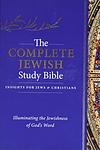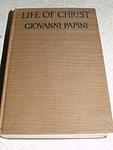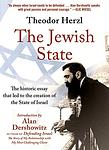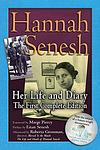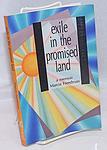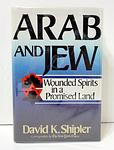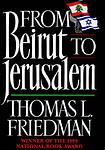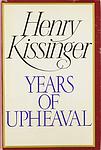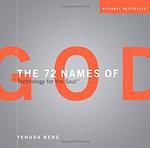The Greatest "Israel, Nonfiction" Books of All Time
Click to learn how this list is calculated.
This list represents a comprehensive and trusted collection of the greatest books. Developed through a specialized algorithm, it brings together 300 'best of' book lists to form a definitive guide to the world's most acclaimed books. For those interested in how these books are chosen, additional details can be found on the rankings page.
Genres
Countries
Date Range
Reading Statistics
Click the button below to see how many of these books you've read!
Download
If you're interested in downloading this list as a CSV file for use in a spreadsheet application, you can easily do so by clicking the button below. Please note that to ensure a manageable file size and faster download, the CSV will include details for only the first 500 books.
Download-
1. Eichmann in Jerusalem: A Report on the Banality of Evil by Hannah Arendt
This book is a thought-provoking exploration of the trial of Adolf Eichmann, a major organizer of the Holocaust. The author argues that Eichmann was not a fanatical ideologue, but rather an ordinary individual who simply followed orders and bureaucratic procedures, highlighting the terrifying potential for evil in any system that values obedience over personal responsibility. The concept of the "banality of evil" is introduced, suggesting that horrific acts can be committed by ordinary people under certain conditions.
-
2. The Hebrew Bible by Jewish scripture
This book is a comprehensive collection of Jewish scriptures, also known as the Hebrew Bible or Tanakh, which is divided into three sections: the Torah (Pentateuch), the Nevi'im (Prophets), and the Ketuvim (Writings). It includes historical accounts, laws, ethical guidelines, songs, prayers, wisdom literature, and prophecies, providing the religious, moral, and social foundations for Judaism and, by extension, Christianity and Islam. The book is considered sacred and authoritative by Jews worldwide.
-
3. Life of Christ by Giovanni Papini
"Life of Christ" is a comprehensive biography of Jesus Christ, exploring his life, teachings, and impact on humanity. The book delves into the historical, cultural, and spiritual context of his era, providing in-depth analysis of his miracles, parables, and relationships with his disciples and followers. The author also examines the significance of Christ's crucifixion and resurrection, aiming to provide a thorough understanding of his life and mission.
-
4. Gospels by Unknown
"Gospels" is a collection of four books from the New Testament of the Christian Bible, written by various authors. These books provide accounts of the life, teachings, death, and resurrection of Jesus Christ, each from a different perspective. They serve as the primary source of information about Jesus and form the basis of Christian theology and belief.
-
5. The Messianic Idea In Judaism, And Other Essays On Jewish Spirituality by Gershom Scholem
This book is a collection of insightful essays exploring the complex nature of Jewish mysticism and the development of the Messianic idea within the Jewish tradition. The author, a preeminent scholar of Jewish mysticism, delves into the historical and spiritual evolution of these concepts, examining their origins, their influence on Jewish thought, and their manifestations throughout Jewish history. The essays also discuss the role of Kabbalah and other mystical traditions in shaping the spiritual landscape of Judaism, offering readers a deep and nuanced understanding of the spiritual dynamics that have animated Jewish life and thought for centuries.
-
6. Der Judenstaat by Theodor Herzl
This book is a seminal work proposing the establishment of a Jewish state as a solution to the long-standing persecution of Jews in Europe. The author argues that the best way to avoid anti-Semitism is to create a state where Jews can govern themselves. He discusses potential locations for this state, including Palestine and Argentina, and outlines a detailed plan for its economic, political, and social structure. The book is considered a foundational text for the Zionist movement.
-
7. Hannah Senesh by Hannah Senesh
This book is a collection of the diaries, letters, and poems of a young Jewish woman who emigrated from Hungary to Palestine in the 1930s, driven by her Zionist beliefs. She joined the Haganah and later volunteered for a daring military operation to parachute into Nazi-occupied Europe during World War II, with the aim of aiding Allied forces and rescuing Hungarian Jews from the Holocaust. Her writings reflect her courage, literary talent, and the depth of her commitment to her cause. Tragically captured, tortured, and eventually executed by the Nazis, she became an enduring symbol of bravery and sacrifice in the face of tyranny.
-
8. The Samaritan Treasure by Marianne Luban
"The Samaritan Treasure" is an intriguing historical novel that delves into the ancient world, weaving a tale of mystery and adventure around the biblical account of the Good Samaritan. The narrative follows an archaeologist who stumbles upon a clue to the legendary treasure of the Samaritans, leading to a thrilling quest that spans continents and centuries. As the protagonist deciphers ancient texts and navigates dangerous liaisons, the story explores themes of faith, cultural heritage, and the enduring allure of hidden riches. The novel is a blend of meticulous historical research and imaginative storytelling, offering readers a captivating journey through time and the human spirit's quest for discovery.
-
9. Exile In The Promised Land: A Memoir by Marcia Freedman
This memoir recounts the journey of a feminist activist who emigrated from the United States to Israel in the 1960s, seeking to be part of the Zionist dream. The narrative delves into her political and personal life, detailing her experiences as one of the first women to serve in the Israeli Knesset, her advocacy for women's and LGBTQ rights, and her eventual disillusionment with the realities of Israeli politics and society. The book offers a candid look at the complexities of Israeli life, the challenges of immigration and identity, and the struggle to reconcile idealism with the often harsh political and social landscape of the Promised Land.
-
10. My Life by Golda Meir
The book is an autobiography of one of the most influential women in modern history, who rose from the poverty of her childhood in Russia and Milwaukee to become the Prime Minister of Israel. It offers a compelling account of her role in the founding of the state of Israel and its early years, providing personal insights into the myriad political and military challenges the nascent country faced. The narrative is interwoven with her own life story, including her experiences with immigration, education, and her rise through the ranks of the labor movement and political leadership, all set against the backdrop of the 20th century's tumultuous events leading up to and following the establishment of Israel.
-
11. Arab and Jew by David K. Shipler
The book explores the cultural, political, and personal divisions between Arabs and Jews in the Middle East, specifically in Israel and Palestine. The author, through extensive interviews and personal experiences, delves into the deeply rooted prejudices, stereotypes, and mutual misunderstandings that fuel the ongoing conflict. The book sheds light on the human aspect of the struggle, highlighting the shared similarities and the tragic consequences of the divide.
-
12. The Fateful Triangle by Noam Chomsky
"The Fateful Triangle" explores the complex relationships and political dynamics between the United States, Israel, and Palestine. The book critically examines how U.S. foreign policy, particularly its unwavering support for Israel, has impacted the Israeli-Palestinian conflict. Through a detailed analysis of historical events, media coverage, and political rhetoric, the author argues that this triangular relationship has perpetuated injustice and hindered a peaceful resolution in the Middle East. The work challenges readers to reconsider the narratives commonly accepted in Western media and political discourse, advocating for a more nuanced and equitable approach to Middle Eastern politics.
-
13. From Beirut to Jerusalem by Thomas L. Friedman
This book is a comprehensive exploration of the Middle East and its complex history, politics, and conflicts, written by a journalist who spent a decade in the region. The author offers an insightful analysis of the Lebanese civil war, the Israeli-Palestinian conflict, and the broader regional dynamics, providing an in-depth understanding of the issues from a personal perspective. The book combines historical research, political analysis, and personal anecdotes, making it an engaging and informative read for anyone interested in Middle Eastern affairs.
-
14. Years Of Upheaval by Henry A. Kissinger
"Years of Upheaval" is a detailed and introspective account of the author's tenure as the U.S. Secretary of State during the tumultuous years of the early 1970s. The book delves into the complexities of international diplomacy and political maneuvering during a period marked by the winding down of the Vietnam War, the historic 1973 Yom Kippur War in the Middle East, and the consequential peace negotiations that followed. It also explores the intricate dynamics of U.S.-Soviet relations and the strategic arms limitation talks, providing a deep insight into the challenges and intricacies of Cold War diplomacy, all set against the backdrop of domestic political upheaval and the Watergate scandal.
-
15. Sayings Of The Fathers by Unknown
"Sayings of the Fathers" is a compilation of ethical teachings and maxims from Jewish sages. This text, part of the Mishnaic tractate of Pirkei Avot, serves as a guide to personal development and spiritual growth. It emphasizes the importance of character, humility, learning, and the pursuit of justice, offering wisdom that has been influential in Jewish thought and beyond. The sayings encapsulate the essence of moral conduct and provide insights into leading a life that balances worldly concerns with spiritual aspirations.
-
16. Poems Of Nathan Zach by Nathan Zach
The book is a collection of poetry by an influential modern Hebrew poet, known for his innovative and modernist approach to language and form. The poems explore themes of identity, existentialism, and the human condition, often challenging traditional poetic structures and expectations. The poet's work is characterized by its lyrical intensity, intellectual depth, and a profound engagement with the cultural and historical landscape of his time. Through his verse, readers are invited to contemplate the complexities of individual experience within the broader context of collective memory and societal change.
-
17. Palestine by Joe Sacco
The book is a graphic novel that combines the artistry of comics with the in-depth reporting of investigative journalism to explore the complexities of life in the West Bank and Gaza Strip during the early 1990s. Through a series of personal interviews, the author vividly portrays the daily struggles and enduring spirit of Palestinians living under Israeli occupation. The narrative weaves together historical context, cultural insights, and the poignant stories of individuals, offering a nuanced and humanizing perspective on a conflict often reduced to political talking points. The graphic novel's stark black-and-white illustrations serve to amplify the emotional impact of the testimonies and the harsh realities of the Palestinian experience.
-
18. Kabbalah by Unknown
This book provides an in-depth exploration of Kabbalah, a mystical Jewish tradition. It delves into its historical origins, core philosophies, and spiritual practices, giving readers a comprehensive understanding of its principles and teachings. The book also discusses the Kabbalah's influence on various aspects of Jewish culture and its relevance in the contemporary world.
-
19. Jerusalem by Simon Sebag Montefiore
The book is a comprehensive and vivid historical narrative that delves into the rich and tumultuous past of one of the world's most contested and sacred cities. Spanning thousands of years, the work chronicles the city's inception, its central role in the development of three major monotheistic religions, and the endless series of conflicts and transformations it has undergone. Through a tapestry of personal stories, political intrigue, and religious fervor, the author weaves together a detailed account of Jerusalem's multifaceted history, revealing how this unique city has been revered, fought over, and cherished by countless generations.
Reading Statistics
Click the button below to see how many of these books you've read!
Download
If you're interested in downloading this list as a CSV file for use in a spreadsheet application, you can easily do so by clicking the button below. Please note that to ensure a manageable file size and faster download, the CSV will include details for only the first 500 books.
Download
